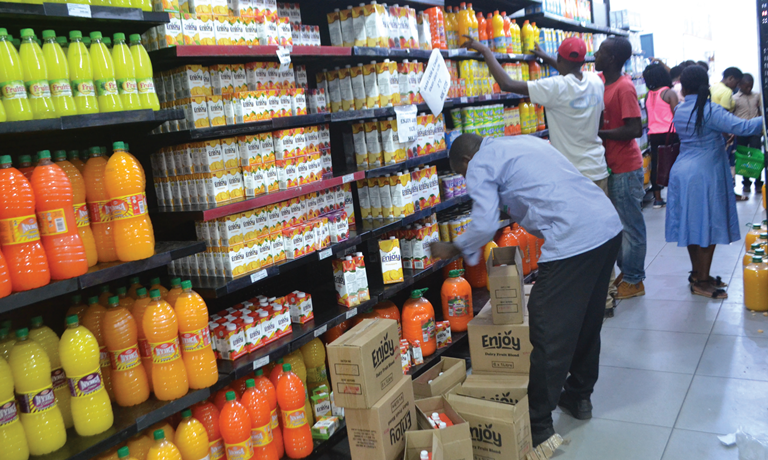Reserve Bank of Malawi (RBM) says rising commodity prices on the global market are influencing local retailers of cooking oil to raise prices, thereby contributing to inflation.
In its recent Market Intelligence Report, RBM said just like crude oil, prices of several commodities have also skyrocketed on the international in recent months due to the impact of the Russia-Ukraine war.
The commodities include fertiliser, wheat flour and vegetable oils.
In recent months, prices of most basic needs have been on the rise
Reads the report in part: “Among the crude vegetable oils, coconut oil prices rosvb54fbe by 6.5 percent to $2,148.0 per metric tonne [MT] during the review month from $2,16.0 per MT in January 2022.
“Similarly, palm oil prices soared by 13.2 percent to $1,522.0 per MT in February 2022 from the preceding month’s position of $1,345.0 per MT, while that of soybean oil increased by 8.6 percent to $1,596.0 per metric tonne from $1,470.0 per MT during the same period.”
Wheat prices averaged $390.5 per MT in February 2022, up from $374.20 per metric tonneMTprevious month, a development which has seen prices of prices of wheat products such as bread, rising in the recent period, “which may exert food price pressures in the near-term”.
On the other hand, the price for potassium chloride edged up by 77.3 percent to $391.8 per MT in February 2022 from $221 per MT for January 2022.
During the same period, Di-ammonium Phosphate (DAP) was sold at $747.1 per metric tonne, rising from $699.4 per metric tonne in January 2022.
Urea was the only main type of fertilizer which recorded a monthly price decrease of 12.1 percent to $744.2 per metric tonne during the month under review compared to $846.4 per metric tonne for January 2022.
“The Russia-Ukraine conflict has also created global supply shortages for fertiliSers due to shipping challenges which have led to an increase in its global prices, as both countries are among the main global producers of this commodity. Not surprisingly, the global economy is currently experiencing price shocks in most of the types of fertilizers.
“Unless the current trend in fertiliSer prices reverses, the crop size for the 2022/23 agricultural season could be adversely affected, thereby inducing supply-driven inflationary pressures,” said RBM on the report.
Meanwhile, Centre for Social Concern(CfSC) data shows that the cost of living in Malawi’s four cities, Lilongwe, Zomba, Blantyre and Mzuzu, shot by an average 5.45 percent to K255 593 last month largely propelled by a rise in food prices.
According to the March 2022 CfSC Basic Needs Basket (BNB) report, in the period under review, the food basket which includes maize, milling and cooking oil among other items rose to an average of K147 134.
On the other hand, non-food basket which comprises housing, electricity and water among other items rose to an average of K107 985 for a household of six members.
Consumers Association of Malawi (Cama) executive director John Kapito earlier said consumers have been left with a little breathing space as cost of living has gone up.
He said: “The current situation is hard economically and socially. We do not know where this leads to but one can predict that tough times ahead.
“Many Malawians are currently experiencing challenges to access the very basic needs that a year ago was affordable. The rising inflation has also affected the lack of access to disposable incomes.”
The post Global commodity hike impacts domestic market appeared first on The Nation Online.
 Moni Malawi
Moni Malawi 

